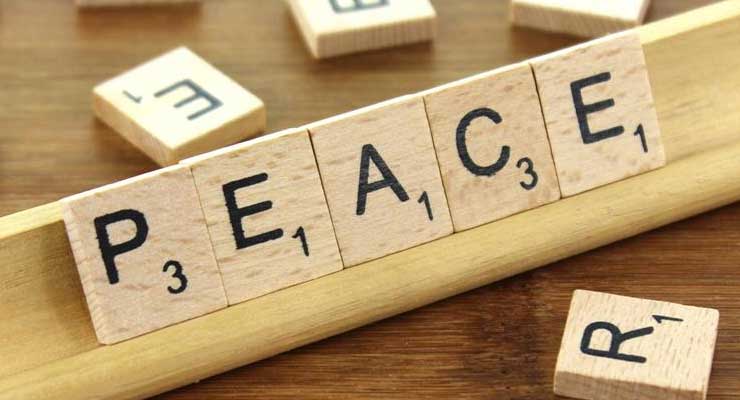
Violence and economic growth have never been synonymous. In fact, the former affects the latter when it comes to better health facilities, adequately resourced schools and infrastructure development to help improve the living standards of people. However, when violence erupts, it thwarts development and scares away investors leaving the citizens to ultimately suffer. A country with an already fragile economy cannot afford a violent conflict. Hence the unfolding tragedy in Zimbabwe must be condemned and stopped. Unfortunately, there are reports of soldiers killing six people and injuring 14 others, besieging surrounding urban areas and brutalizing citizens.
The relatively peaceful period leading to the July 30 elections is already being cherished in the post-election season where emotions are running high following allegations of rigging and intimidation. For a country ranked 124 out of 162 on the Global Peace Index, it may be surprising to some that Zimbabwe had not suffered from violent conflict in recent years post 2008. But the depressed socio-economic and political environment has seen calls for public marches and demonstrations from opposition political parties and some sections of civil society as early as 2016 when social movements such as #thisflag was formed. These popular calls for charge have largely been ignored by the government.
On August 1, the army was deployed in the nation’s capital, Harare, to quash an opposition MDC Alliance demonstration when the casualties among protesters took place. Coupled with the unusually fraught political tension in the election run-up, this recent violence is cause for concern. It is feared this initial violence will increase the temperature of the already tense situation. Addressing these issues now could be vital in preventing violence in the future.
The post-elections conflict has begun
There has been public rising tension among the political elite in Zimbabwe after the declaration of Emmerson Mnangagwa as winner of the July 30 presidential election. As it stands now, the ruling ZANU-PF, in power since independence in 1980, has a new mandate that will run to 2023.
However, dissent and rifts within the party ranks already threaten to disrupt the election of Mnangagwa as president with voters. Some constituencies/counties would vote for a ZANU-PF member of parliament, only to vote for opposition MDC Alliance presidential candidate Nelson Chamisa.
The expulsion of the Vice President, Joice Mujuru, along her many supporters, in December 2014 and the deposition of Robert Mugabe through a coup in November 2017 caused a huge split in ZANU-PF. Those expelled, mostly long-serving liberation war comrades, cabinet ministers and senior party officials, lost no time in forming their own political party. Although Mnangagwa narrowly won a mandate, this puts the erstwhile ZANU- PF comrades at loggerheads and could lead to a potential showdown in the next five years.
What further post-election violence would mean to the region and world
Violent conflict in Zimbabwe would affect not just Zimbabweans, but its neighbors and the entire region. South Africa is Zimbabwe’s biggest trading partner and they share the busiest inland port of entry in Sub-Saharan Africa that link South Africa to the rest of Africa. Violence could mean an absence of a government in full-control of the country. The running of schools, hospitals, and other public amenities would likely also be affected, further hurting the already fragile economy that has seen most of the past 18 years in recession.
If Zimbabwe is to continue without addressing its unresolved tensions, the potential chaos and violence could be substantial considering the underlying tribal tensions that remain unresolved to this day. As we have witnessed in other sub-Saharan countries experiencing a civil war, large numbers of refugees could be forced to scurry for cover in neighboring countries, resulting in a humanitarian crisis.
What political parties and other stakeholders can do to avoid violent conflict in Zimbabwe
It is vital that Zimbabwean every political party preaches nonviolence. We should learn from 2008 elections left over 200 mostly opposition activists dead and thousands more either injured or displaced. Violence creates chaos, and advantage could be taken to cause atrocities like what happened on August 1.
Political parties and civil society must stick to their roles, that of either peacefully canvassing for votes or complementing government efforts. The judiciary must be impartial in handling election-related complaints. Each case must be decided on merit and not through partisan politics. Perhaps most important, Zimbabweans must show patience to allow due process to take its course without resorting to violence that will harm the already fragile economy where unemployment and poverty is on the increase.
Ngah Gabriel says
Great article. Beyond non-violence the causes of the post-election violence (PEV) in Zim could be identified within the nature of politics entrenched in the Civil Military Corporation of Power. Mnangagwa’s post-coup seduction could hardly work as a magic wand to wipe out the army’s usual crackdown on protests. In addition to non-violence, true democracy remains the panacea for peace and security